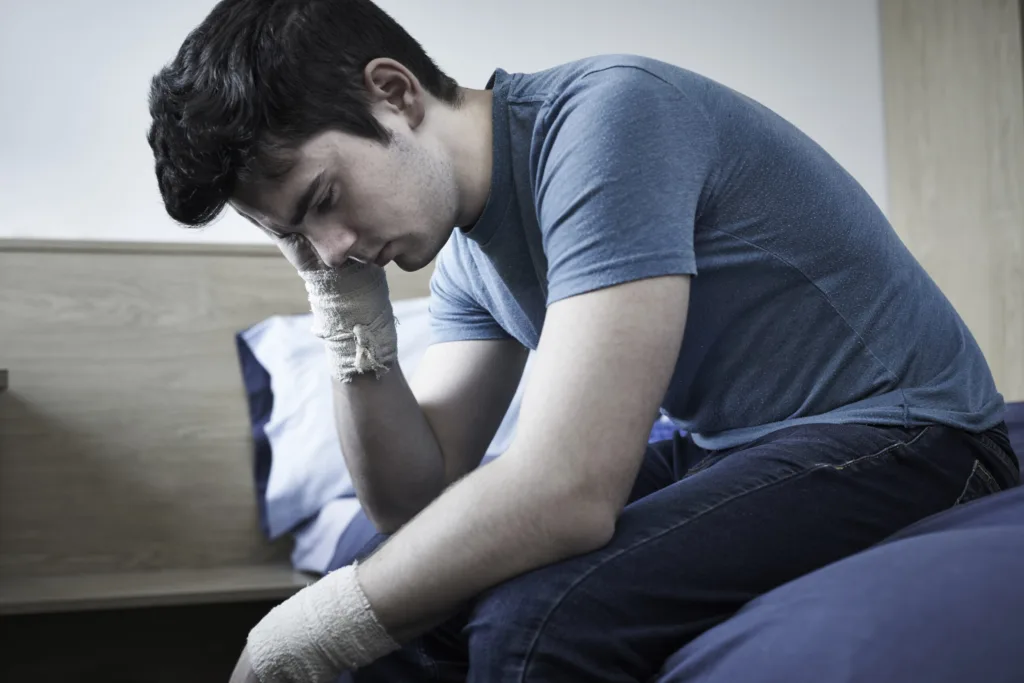If you already practice yoga, you may have experienced some of the benefits it provides for your mental and physical health. If not, you’re in the right place to learn more about it.
What many people don’t realize is yoga is far more than stretching and striking poses, it can actually be a powerful way to build physical strength, relieve stress and anxiety and improve your overall mental health and self-esteem.
Today, we’re going to take a closer look at the top benefits of yoga for addiction recovery, as well as break down a few of the most common types of yoga used in healing.
What is yoga?
Yoga is an ancient practice to bring harmony between the body, mind and spirit.
Yoga can help individuals achieve not only physical strength but emotional stability, mental strength, inner peace and more through various exercises and breathwork techniques.
In addition to being a low-impact (but still muscle-developing) form of exercise, yoga also provides mental and physical discipline. The nature of yoga is quiet and slow, and yet, requires an incredible amount of focus, patience and perseverance.
Yoga can be highly beneficial for men and women of all ages, in all walks of life, and provides a multitude of benefits, especially to those in addiction recovery.
The benefits of yoga
When it comes to practicing yoga for addiction recovery, there’s no shortage of benefits.
Some of the best benefits of practicing yoga in recovery include:
- Reducing stress and anxiety
- Improving physical healing
- Helping regulate emotions
- Reducing cravings
- Deeper and more restful sleep (especially when practiced before bed)
- Developing healthier coping skills
- Strengthening self-control and mental strength
- Improving self-esteem and confidence
Whether you’re actively in a rehabilitation program, a sober living home or are just now returning to independent living, yoga might be one of the healthiest and most productive habits you form.
Yoga for addiction recovery
There’s no one type of yoga that’s best for addiction recovery, but after trying a few different modalities, you’ll probably find that you prefer certain types of yoga to others.
There are many different kinds of yoga, but some of the most common types used by those in recovery include hot yoga, Bikram yoga and yin yoga.
1. Hot yoga
Hot yoga is a style of yoga that’s practiced in a heated room, typically at least 95°F, and though it can be incredibly challenging, it’s also an invigorating practice. Hot yoga benefits include detoxification, improved circulation, joint comfort, weight management, easier flexibility and more.
2. Bikram yoga
Bikram yoga is a style of hot yoga characterized by a fixed sequence of poses in a specific 90-minute class, with an emphasis on breathing. Bikram yoga benefits are similar to those stated above, as it is a form of hot yoga. Individuals who practice Bikram yoga might also experience stress reduction, better mental clarity and cardiovascular conditioning.
Because of the combination of a hot environment and physical activity, it’s important to listen to your body and pay attention if you notice yourself getting lightheaded or dizzy in a hot yoga class. Everyone’s physical limits are different, and certain health conditions can make this environment more difficult than beneficial.
3. Yin yoga
Yin yoga is a quiet, gentle, slow-paced style of yoga that’s more focused on improving connective tissues (like tendons and ligaments) rather than weight loss or muscle building (though these benefits can still be reaped by consistent practice).
This type of yoga is characterized by holding positions for longer amounts of time, relaxing and surrendering your muscles to the stretches, and practicing mindfulness and meditation. Yin yoga benefits include:
- Aiding in relaxation and sleep
- Stimulating better circulation and hydration
- Improved joint health
- Reduced stress
- Reduced anxiety
Because of the nature of yin yoga, it’s accessible for nearly all individuals, regardless of their level of flexibility or abilities, making it suitable for beginners of all ages.
Yoga is not a substitute for professional addiction treatment, but it can be an incredibly beneficial and valuable practice when integrated into a comprehensive recovery plan.
Begin healing today
High Focus Centers is a premier treatment center that specializes in providing outpatient mental health and substance use treatment to tweens, adolescents and adults.
Whether you’re struggling with mental health issues, a substance use disorder, unresolved trauma or a combination of all three (also known as co-occurring disorders), we’re here to help.
We understand the importance of full-person healing, which is why each of our treatment plans focuses on helping you heal not only your body from addiction but your mind and soul as well.
Please send us a message today to speak with one of our intake specialists and learn more about our services and how we can best support you on your journey to mind, body and soul healing.
Recent Posts
- How Mood Stabilizers Work to Restore Emotional Balance
- Trauma-Informed Approaches in Therapy: Why Understanding Trauma is Essential for Healing
- Using Art as a Voice: Exploring the Therapeutic Benefits of Creativity
- What is Xylazine?
- How Overcoming Roadblocks is Crucial to Recovery – And How Your Treatment Center Can Help




